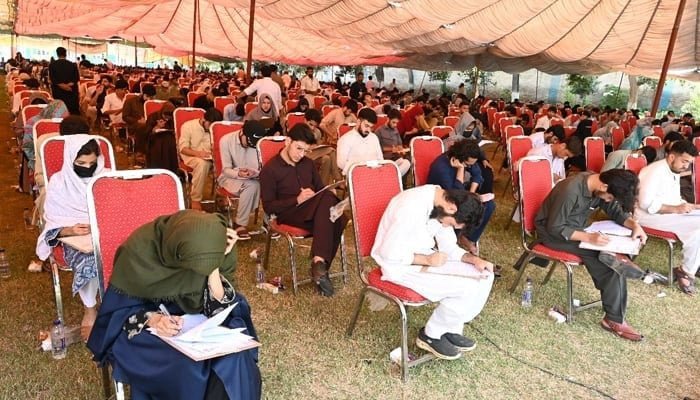To standardize medical and dental education across Pakistan, the Pakistan Medical and Dental Council (PMDC) has updated the syllabus for the upcoming Medical and Dental College Admission Test (MDCAT).
PMDC President Dr. Rizwan Taj announced that the revised curriculum, now available on the PMDC website, will be the foundation for the national entrance exam. The MDCAT 2025 is tentatively scheduled for either the last Sunday of September or the first Sunday of October, with the final date to be determined after consultations with admitting universities and Council approval.
The updated syllabus covers five key subjects: Biology, Chemistry, Physics, English, and Logical Reasoning. The PMDC emphasizes analytical and reasoning skills, aiming for a modern, merit-based assessment.
The exam will consist of 180 multiple-choice questions to be completed in three hours. The difficulty level will be distributed as follows: 15% easy, 70% moderate, and 15% difficult. Importantly, there will be no negative marking. To qualify, candidates need at least 55% marks for medical college admission and 50% for dental colleges.
Professor Rizwan Taj highlighted the revised syllabus as a significant step toward fairness, transparency, and academic rigor in the admissions process. He explained that the previous syllabus had shortcomings that have been addressed through a comprehensive review and reform over the past six months.
“The new syllabus was developed through extensive consultations with education experts, universities, and provincial authorities, aligning it with national academic standards and international best practices. It places strong emphasis on conceptual understanding and analytical skills across core science disciplines,” Dr. Taj stated.
He also mentioned that the PMDC is creating a national question bank with the help of subject matter experts to ensure consistent testing. The MDCAT Committee, along with its working groups, finalized this unified curriculum through a transparent and collaborative process.
Dr. Taj elaborated on the development process, stating, “A total of nine meetings were held by the Committee and its working groups to develop and refine the curriculum. The first draft was issued in March, after which comprehensive feedback was sought from all stakeholders, including education and health departments from all four provinces, the regions of AJK and Gilgit-Baltistan, the Inter Board Committee of Chairmen, federal and regional boards, admitting universities and the public at large.”
He concluded by stating that the suggestions and input from all stakeholders were carefully considered and incorporated into the final curriculum syllabus before its approval by the National Medical and Dental Academic Board and PMDC.


